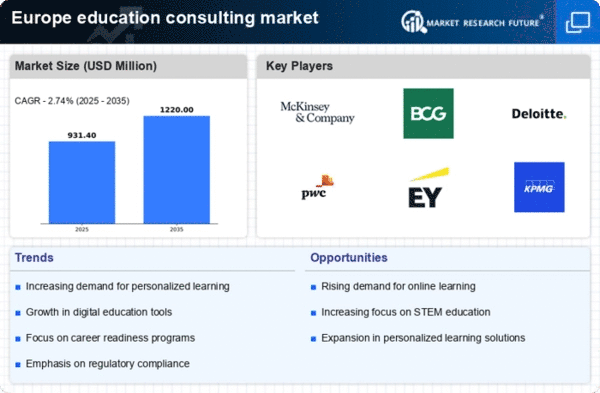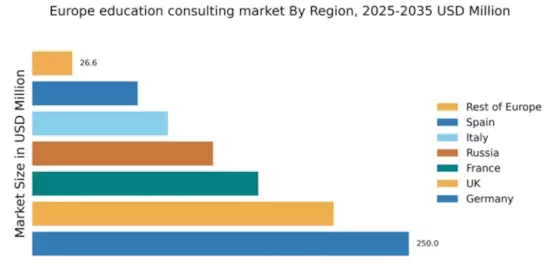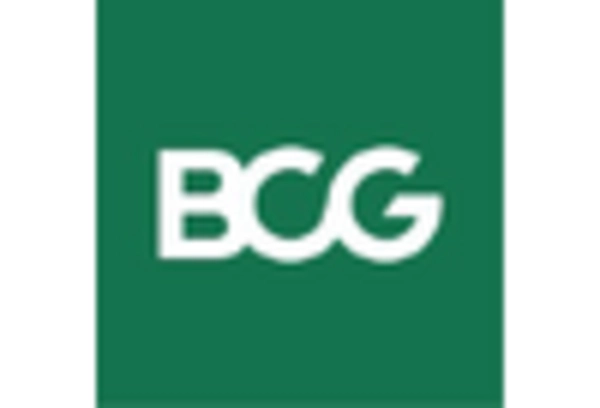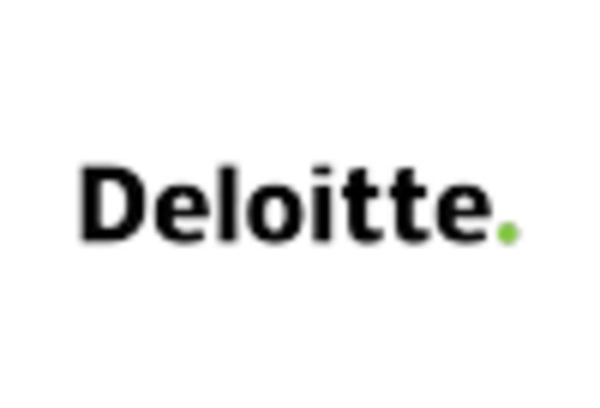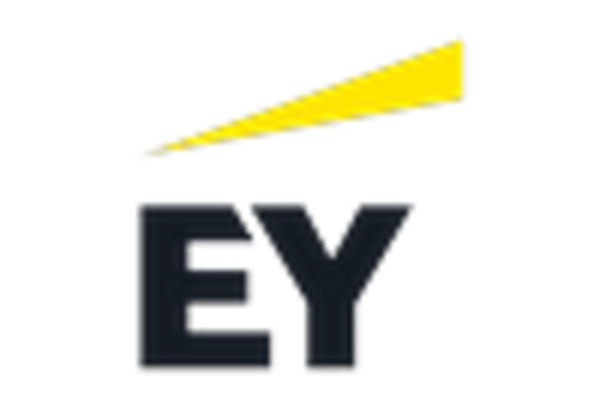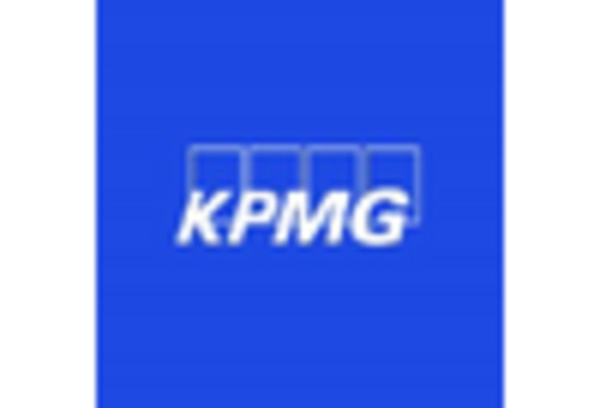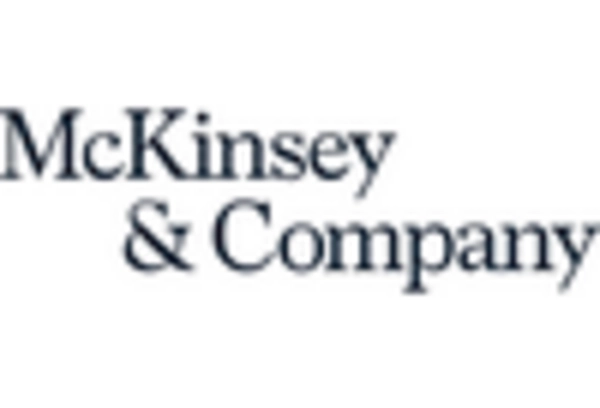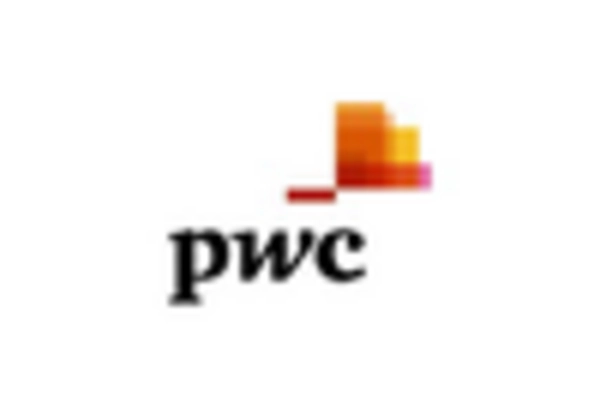Emphasis on Data-Driven Decision Making
The education consulting market in Europe increasingly emphasizes data-driven decision making. Educational institutions are recognizing the value of leveraging data analytics to inform strategic planning and improve educational outcomes. This trend is evidenced by a growing investment in data management systems and analytics tools, with the market for educational data analytics projected to reach €5 billion by 2026. Education consulting firms are well-positioned to assist institutions in harnessing the power of data, providing insights that can lead to more effective teaching strategies and resource allocation. As institutions strive to enhance their performance and accountability, the demand for consulting services that focus on data analysis and interpretation is likely to rise. This shift towards data-driven practices not only enhances the credibility of educational institutions but also drives the growth of the education consulting market.
Rising Demand for International Education
The education consulting market in Europe is significantly influenced by the rising demand for international education. As globalization continues to shape the educational landscape, students are increasingly seeking opportunities to study abroad. This trend is particularly pronounced among European students, with a reported 30% increase in applications for international programs in recent years. Education consulting firms are capitalizing on this demand by offering services that assist students in navigating the complexities of studying abroad, including application processes, visa requirements, and cultural adaptation. The market for international education consulting is projected to grow substantially, with estimates suggesting a potential increase of 25% in consulting engagements related to international education by 2026. This growth presents a lucrative opportunity for consultants to expand their service offerings and cater to the evolving needs of students pursuing global educational experiences.
Growing Investment in Education Technology
The education consulting market in Europe is seeing a notable surge in investment in education technology. This trend is driven by the increasing recognition of the importance of digital tools in enhancing learning outcomes. In 2025, it is estimated that the education technology sector in Europe will reach a valuation of approximately €30 billion, reflecting a compound annual growth rate (CAGR) of around 15%. This influx of capital is likely to foster innovation and the development of new consulting services that help educational institutions integrate technology effectively. As schools and universities seek to modernize their curricula and teaching methods, education consulting firms are positioned to provide essential guidance and support, thereby driving growth in the market. Furthermore, the emphasis on technology adoption is expected to create new opportunities for consultants specializing in digital transformation strategies.
Shift Towards Lifelong Learning Initiatives
The education consulting market in Europe is experiencing a paradigm shift towards lifelong learning initiatives. As the job market evolves, there is a growing recognition of the need for continuous skill development among the workforce. This trend is reflected in the increasing number of adult learners seeking educational opportunities beyond traditional schooling. In 2025, it is estimated that the adult education sector in Europe will account for approximately €15 billion, indicating a robust demand for consulting services that cater to this demographic. Education consultants are increasingly tasked with designing and implementing programs that facilitate lifelong learning, thereby enhancing employability and career advancement. This shift not only expands the client base for education consulting firms but also encourages the development of innovative learning solutions tailored to adult learners, further driving growth in the market.
Increased Regulatory Compliance Requirements
The education consulting market in Europe is significantly impacted by evolving regulatory compliance. Governments across the region are implementing stricter regulations aimed at ensuring quality and accountability in educational institutions. For instance, the European Union has introduced various directives that mandate transparency in educational practices and the safeguarding of student data. As a result, educational institutions are increasingly seeking the expertise of consultants to navigate these complex regulatory frameworks. This demand for compliance-related consulting services is projected to grow, with an estimated increase of 20% in consulting engagements related to regulatory compliance by 2026. Consequently, education consulting firms that specialize in compliance are likely to see a substantial rise in their market share, as institutions prioritize adherence to regulations to avoid penalties and enhance their reputations.


